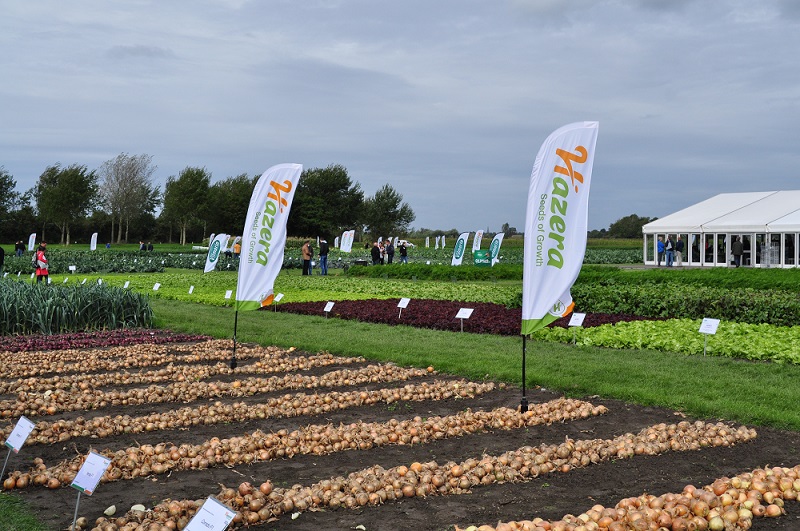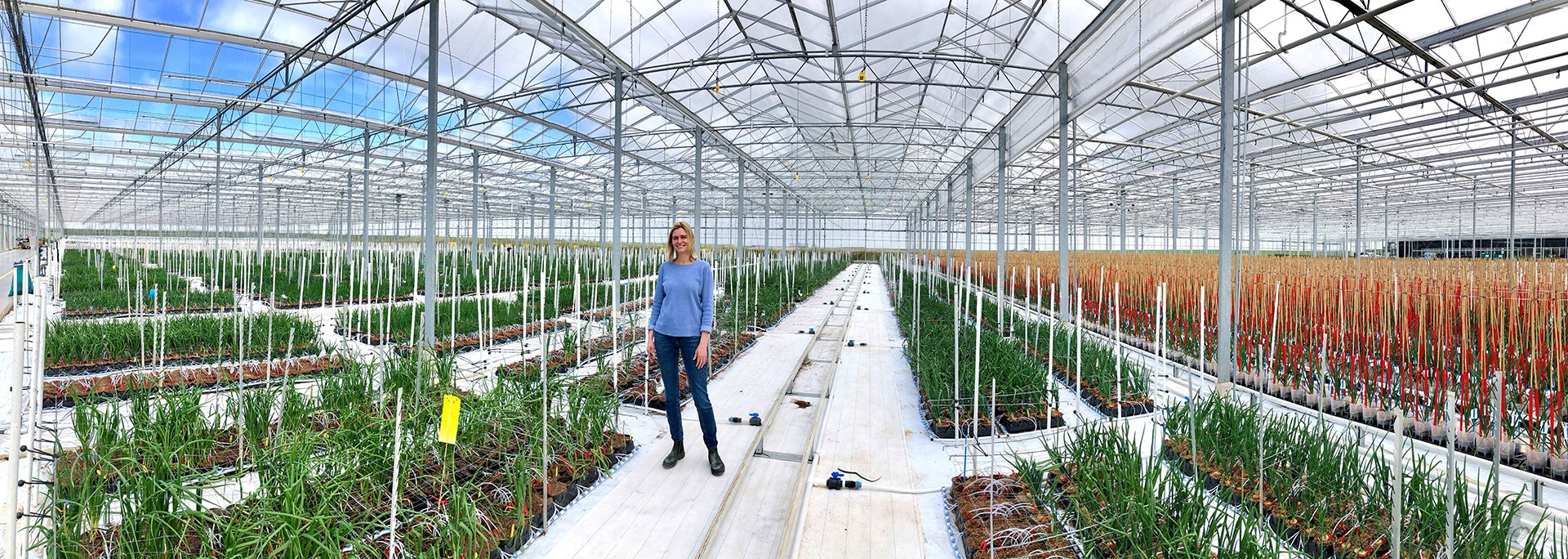Hazera has offered a winning combination of high yields and long storage-life in onions for years.
The Netherlands is one of the world’s major exporters of onions. Innovations introduced by Hazera in Rilland have made a valuable contribution to that prominent position. Years of dedicated research and careful breeding programmes have resulted in a high demand from growers, exporters and consumers for Hazera products. “It is a winning combination of high yields and long storage-life. In that respect we are leading the world”, according to Laura Poelstra, Site Manager of Hazera in Rilland.
Anyone looking behind the scenes at Hazera Seeds in Rilland will quickly reach the conclusion that onion breeding is an extremely time-consuming and lengthy process. Onions are a biennial crop which means the breeding process takes twice as long.
Laura Poelstra: “It can take as long as 15 to 20 years to produce a new, successful variety. Every year our breeders create new hybrid crosses, all of which – in collaboration with growers – are selected on the trial fields. The results are sent to Rilland where their traits are assessed.” The breeders then examine the selections from the trials to see if they have the desired qualities and if the traits remain stable during the selection process. “We ultimately end up with about one percent of all the hybrids produced that are suitable for seed production, “says the Site Manager.
Science
For years, Zeeland formed the epicentre of onion growing. But, according to Laura, there are changes ahead. “The presence of soil-borne diseases such as Fusarium and white rot in Zeeland ensured that onion cultivation moved to new areas, most recent the east of The Netherlands”. The influence of climate change has been felt in recent years and we are also conducting research into salt and drought-tolerant crops.
If you realise that an onion contains eight times as much DNA as a human, you can appreciate that pinpointing the right traits is not a simple matter. It is a scientific feat of the highest level.”
Climate zones
As seed produced by Hazera is used by growers all over the world, a lot of research is devoted to climate zones. As well as the research facility in Rilland, Hazera has a station in Israel and two breeding stations in the United States. Onions are a daylight-sensitive crop. This means that the plant will only produce an onion bulb if the light and temperature conditions are ideal. Our trial sites are located in various regions of the world. “Local conditions are different everywhere and we adapt our breeding activities accordingly.”
Logistics
The work in Rilland involves extensive logistics. As soon as a new trait has been selected and a hybrid has been produced, it must undergo thorough trials. This means that all the inbound and outbound propagating material of the onions and leeks has to be registered accurately to provide the breeders with precise data to continue improving the varieties.
Times can change
As you stand chopping an onion at home in your own kitchen, wherever you are in the world, you probably will not be thinking about the intensive efforts that are made every day to create new varieties. But cultivating bulbous crops is not new. It is an absolute necessity, as, in the wild, the onion as we know it no longer exists. Findings suggest that onions were domesticated by humans as far back as 5000 years ago. The plant (of the wild allium family) is thought to have originated from Central Asia. The onion made its way to Europe via China, Afghanistan, India, Egypt and Greece. A lively trade in onions already existed in London in around 1300. Today, the Netherlands is the world’s second largest exporter of onions, with Hazera Seeds ranked among the major onion breeders.









